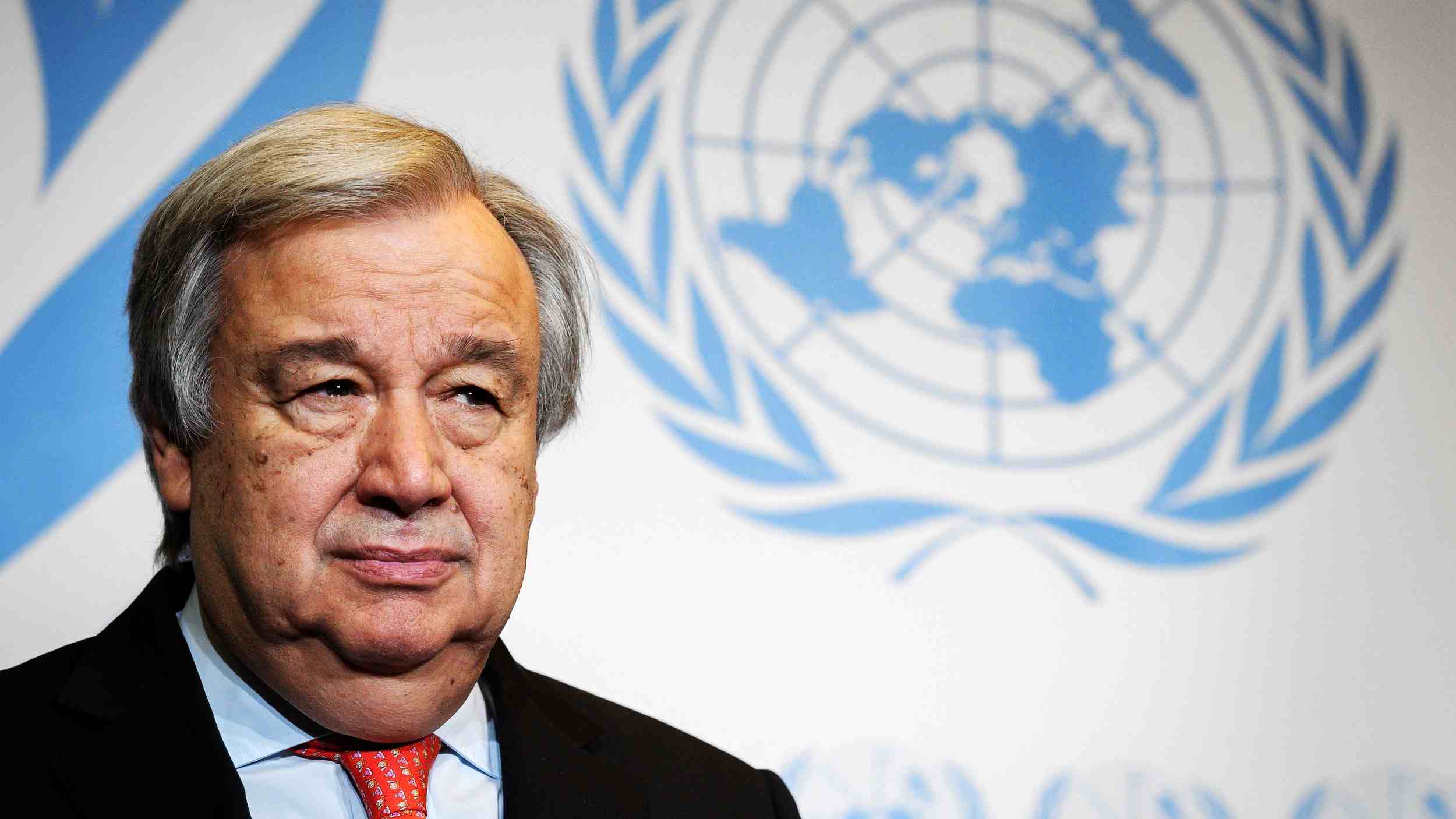
World
13:02, 27-Jul-2018
UN chief warns of cash crunch after US funding cuts, delays
Updated
12:16, 30-Jul-2018
By Abhishek G Bhaya

United Nations Secretary-General Antonio Guterres on Thursday raised an alarm over serious cash crunch in the world body urging member states to clear their dues at the earliest while warning its staff to expect cost-cutting measures.
Guterres’ warning came following a budgetary cut of 285 million US dollars in funding from the US, its largest financial contributor sharing 22 percent of the budget, which in May threatened further funding cuts for two UN agencies and the chemical weapons watchdog.
The UN chief said that as of June 30, the core UN budget had a deficit of 139 million US dollars and that the cash shortfall was caused essentially due to the failure of the UN member states to pay their dues on time.
According to the United Nations, 112 out of 193 member states have so far paid their share of the core budget this year. The US along with 80 other member states haven’t yet paid up their shares of the UN’s 2018 budget in full.

Major contributors including Japan, Germany and the other four permanent members (besides the US) of the UN Security Council – China, Russia, France and Britian – have all cleared their dues.
"Our cash flow has never been this low so early in the calendar year, and the broader trend is also concerning: we are running out of cash sooner and staying in the red longer," Guterres wrote in the message meant for all the member states and posted on the UN's internal communications website.
"An organization such as ours should not have to suffer repeated brushes with bankruptcy. But surely, the greater pain is felt by those we serve when we cannot, for want of modest funds, answer their call for help," he remarked.
The UN chief said "we will need to take measures to reduce expenses, with a focus on non-staff costs" and added that he had tasked the UN management department to come up with ways to cut spending.
The General Assembly in December 2017 approved a two-year budget of 5.4 billion US dollars for the United Nations, which is separate from the UN peacekeeping budget.
At the end of June this year, the amount of money paid by member states was nearly 1.5 billion US dollars - some 200 million US dollars less than at the same time last year.
UN spokesman Stephane Dujarric was quoted by the AFP as saying that "no one is withholding dues" from the UN but that the shortfall was bigger this year because of late payments.
Is the US withdrawing from its commitment?

Under the UN charter, the US is responsible for 22 per cent of the body’s annual operating budget and 28.5 per cent of the cost of peacekeeping operations. It has been reported both by the AFP and Reuters that the US traditionally pays in the later part of the year in line with its national budget cycle.
However, during last year’s UN General Assembly meeting, US President Donald Trump cribbed that Washington was shouldering too much of the cost of the world body.
Soon after, the US ambassador to the UN, Nikki Haley, announced a cut of 285 million US dollars in Washington’s UN budget obligations for 2018-19. She also said that unspecified reductions would be made to the UN’s management and support functions.
“We will no longer let the generosity of the American people be taken advantage of,” Haley had said at the time, adding that the “inefficiency and overspending” of the organization was well-known.
In May it was reported that the US is contemplating slashing funding for UN trade development organization UNCTAD, industrial development agency UNIDO and the Chemical Weapons Convention which is upheld by the Organization for the Prohibition of Chemical Weapons (OPCW) after the inclusion of the Palestinians in those agencies.
A US legislation bars funding for UN agencies or affiliates that grant membership to the Palestinians, who have a non-member observer state status in the United Nations.
Under UN rules, if a member state’s due amount equals or exceeds the contributions due for the previous two years it can lose its General Assembly vote unless the country can show its inability to pay is beyond its control.
Currently Comoros, Guinea Bissau, Sao Tome and Principe and Somalia are significantly in arrears but have been allowed to retain their vote. Only Libya is unable to vote.
(With input from agencies)
[Cover: United Nations Secretary-General Antonio Guterres attends a press briefing after presenting his agenda for disarmament during a conferrence at the University of Geneva on May 24, 2018 in Geneva.]

SITEMAP
Copyright © 2018 CGTN. Beijing ICP prepared NO.16065310-3
Copyright © 2018 CGTN. Beijing ICP prepared NO.16065310-3